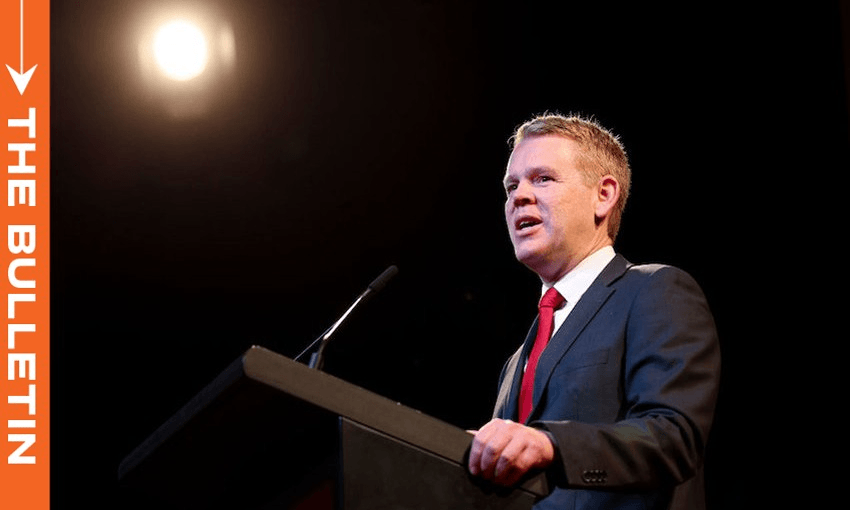The super city needs some attention, writes Stewart Sowman-Lund in this extract from The Bulletin. To receive The Bulletin in full each weekday, sign up here.
The 2026 campaign starts now
On election night last year, one of the most interesting narratives from an otherwise quite unsurprising result was Labour’s performance in Auckland. Early on, it looked as though National was going to unseat Labour in several traditionally red seats. The final results weren’t quite so bad, but nevertheless, Labour was spooked. Mount Roskill, a longtime Labour stronghold, turning blue was perhaps the most damning result, along with Mount Albert being won by Helen White by the slimmest of slim margins (though White, repeatedly, maintained the result was fine). Over the weekend, leader Chris Hipkins addressed party faithful in Wellington. Despite the location of this speech, as the Herald’s Claire Trevett reported, he has renewed his focus on Auckland ahead of 2026, putting last year’s election loss down in part to shedding votes to National in the country’s biggest city.
Why Auckland needs Labour’s attention
Two days after Election 2023, The Spinoff’s Duncan Greive wrote an excellent piece that looked at precisely the problem Hipkins now wants to address. “The punishment inflicted on Labour in Auckland is stunning in its brutality,” wrote Greive. As he explained, the lengthy 2021 Covid lockdown took its toll on the city and many people felt forgotten by the government. “At times it felt like Auckland’s only value was as an economic engine,” said Greive. A day earlier, Newsroom’s Marc Daalder wrote a similar analysis, arguing that while locking down Auckland was the right move from a public health perspective, it was wrong politically. It wasn’t just the lockdown, said Daalder, but the policies (or lack thereof) as well.
Once the votes rolled in, the largest pocket of red in the super city was in South Auckland, but as The Spinoff’s Madeleine Chapman wrote at the time, a closer look at the results there showed things weren’t especially good there either. Voter turnout was down dramatically among the Pacific community, Chapman wrote. It hadn’t helped National, instead people had decided not to vote. Given Labour has traditionally had strong support from the Pacific community, this group should be easy to win back. But, the Pacific Media Network questioned earlier this month whether the Pacific community had still lost trust in Labour. Willie Jackson, for the record, disagreed: “Pasifika is still backing Labour,” he told host William Terite.
A one term government?
With polls showing a lukewarm assessment of the government, even after the budget, Hipkins has made it clear he’s hoping to make the coalition a one-term government. Some polls, notably TVNZ’s in late April, even showed Labour back in the driver’s seat. Last week, Hipkins told Newsroom’s Laura Walters that being in opposition for the past seven months had galvanised his party. “It’s pretty unusual for people to change their minds so soon after an election,” he said of recent poll results. It was a similarly reflective Hipkins that I spoke to for The Spinoff late last year. At the time, I described him as “peaceful and contemplative”, which was almost unsettling after the attack dog seen on the campaign trail. “If you think about it this way,” Hipkins said then, “I’ve always taken the view that… one of the best ways to get a promotion is to do a really good job of the role that you’ve got.” Despite all of this, argued Dan Brunskill for Interest, economic conditions could be very different in 2026 than they are now, something which will help the current government.
Why would voters return to Labour?
It’s all well and good to wait for support to return just because of discontent with the current government. By the time 2026 rolls around, it will have been five years since the last lockdown and voters may be willing to forgive if not forget. Labour MPs have repeatedly argued that’s why National won last year’s election – not because of any grand vision, but because of the amorphous “mood for change”. But policy does need to come into the discussion at some point. Returning to Trevett’s report from yesterday, she said that there was little substance to come out of Hipkins’ speech when it comes to Labour’s vision. “The only firm policy positions Hipkins set out in his speech were to bring back the Fair Pay Agreements Labour had started and to reinstate the pay equity process,” she wrote. And in the Herald this morning, Trevett has written another column on Hipkins, centring on his tour around the country to seek forgiveness from Labour voters for last year’s election result. That can only take him so far in terms of winning back lost support, or gaining new followers.
The party also runs the risk of losing further support to the Greens, perhaps illustrated by the latest Taxpayers’ Union Curia poll that showed that, even after a run of high profile scandals, the party’s result had actually risen. Former MP Peter Dunne made this case in a piece for Newsroom in February, arguing that Labour’s “cosy domination” of the left was under threat from both the Greens and Te Pāti Maori, the latter of which has also stolen the spotlight (for better and for worse) in the months since. In terms of policy, it’s the question of tax that routinely dogs Labour. Max Rashbrooke, writing for The Spinoff earlier in the year, suggested Hipkins could be the one to (successfully) bring the capital gains issue back into the public discourse. Though as an acerbic Hayden Donnell reminded everyone not too long ago, Labour seems to have already forgotten it was in government for six years, and had plenty of chances to do things then.


